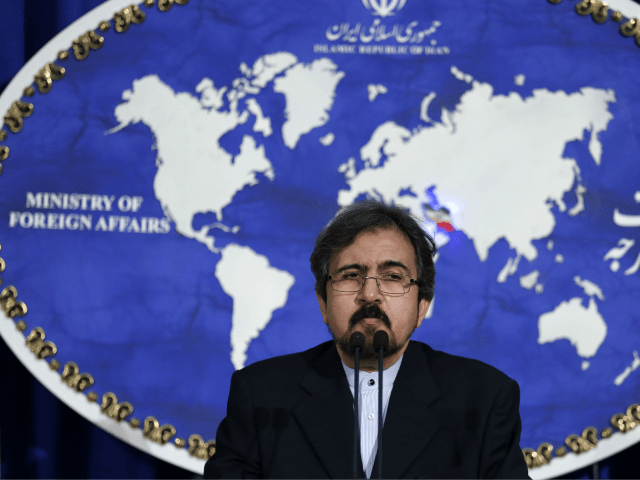BEIRUT (AFP) – Uncertainty spread across the Middle East following Donald Trump’s US election win, with questions hanging over the war against the Islamic State group, the Israeli-Palestinian conflict and Iran’s nuclear deal.
In some parts of the region the surprise victory was welcomed with calls for Trump to take action, in others it sparked alarm.
But it was unclear what impact Trump’s isolationist views would have on US engagements in the Middle East, adding another measure of confusion to an already-volatile region.
– ‘True friend’ of Israel –
Israeli Prime Minister Benjamin Netanyahu rushed to congratulate Trump on his win, calling him a “true friend” of the Jewish state.
“I look forward to working with him to advance security, stability and peace in our region,” the right-wing premier said in a statement.
“I am confident that president-elect Trump and I will continue to strengthen the unique alliance between our two countries and bring it to ever greater heights.”
In a meeting with Netanyahu in New York in September, Trump pledged to recognise Jerusalem as Israel’s “undivided” capital if elected, in a break with longstanding US policy.
Trump’s adviser on Israel, David Friedman, also said last month the candidate was “tremendously sceptical” about the prospects for a two-state solution to the Israeli-Palestinian conflict.
Israeli Education Minister Naftali Bennett, who heads the hardline Jewish Home party, said that with Trump’s election: “The era of a Palestinian state is over.”
Palestinian reaction to Trump’s win was muted.
“We are ready to deal with the elected president on the basis of a two-state solution and to establish a Palestinian state on the 1967 borders,” Palestinian president Mahmud Abbas’s spokesman told AFP.
Nabil Abu Rudeina said failure to resolve the decades-old conflict would mean “the unstable situation will continue in the region”.
– ‘Nice surprise’ in Damascus –
During the campaign Trump repeatedly pledged to “destroy” the jihadist Islamic State group, but presented no clear plan for how.
A US-led coalition is backing Iraqi forces and a Syrian militia alliance as they battle to drive IS from Mosul and Raqa, its last major strongholds in the two countries.
How Trump moves forward with the anti-IS offensive will depend on how he intends to deal with traditional US allies in the region, in particular Sunni Arab Gulf states, and his approach to the war in Syria.
Washington has backed rebel forces opposing President Bashar al-Assad in Syria’s five-year civil war, and Hillary Clinton was especially supportive of regime change.
But Trump has repeatedly voiced admiration for Vladimir Putin and advocated a US rapprochement with Russia — which along with Iran is one of Assad’s strongest supporters.
Trump said earlier this year that fighting both IS and Assad simultaneously was “madness, and idiocy”.
Waddah Abed Rabbo, editor-in-chief of pro-regime Syrian daily Al-Watan, said Trump’s win came as a “nice surprise” in Damascus.
“It is time for the policies of the United States to change and stop being hostage to the catastrophic wishes of the Gulf countries, which have destroyed several countries in the region,” he said.
A Syrian rebel official said opposition forces were actually hoping for more support from Washington.
“The Americans, by their hesitation, have allowed the regime and its allies to commit barbaric massacres against civilians in Syria,” said Bassam Mustafa of the Nureddin al-Zinki rebel group, one of the more powerful factions in rebel-held areas of Syria’s second city Aleppo.
– ‘Not possible’ to change Iran deal –
While Trump’s intentions elsewhere in the Middle East may be vague, his stand on last year’s nuclear deal between world powers and Iran was clear — Trump described it as “disastrous” and said it would be his “number one priority” to dismantle the agreement.
Iran’s President Hassan Rouhani, who staked his political reputation on the deal in the face of fierce hardline opposition, said there was no way Trump could rip it up.
“The accord was not concluded with one country or government but was approved by a resolution of the UN Security Council and there is no possibility that it can be changed by a single government,” Rouhani told his cabinet, according to state television.
“The United States no longer has the capacity to create Iranophobia and to create a consensus against Iran,” Rouhani said.
Foreign Minister Mohammad Javad Zarif said Trump needed to “understand the realities of today’s world.”
“The most important thing is that the future US president stick to agreements, to engagements undertaken,” he said.
– Saudi king urges ‘stability’ –
Washington’s longstanding allies in the Gulf have bristled under President Barack Obama, who they felt was reluctant to get involved in regional conflicts and did not do enough to check the ambitions of their regional rival Iran.
Congratulating Trump on the win, Saudi Arabia’s King Salman praised “historic and tight” ties with the United States and wished him success “in your mission to achieve security and stability in the Middle East and worldwide.”
United Arab Emirates President Sheikh Kahlifa bin Zayed al-Nahyan also said his country was eager to strengthen “strategic relations” with Washington.
Egypt’s President Abdel Fattah al-Sisi said he hoped Trump’s win would inject “a new spirit” into US-Egyptian relations, which have been tense since the army toppled Sisi’s Islamist predecessor Mohamed Morsi in 2013.
Sisi said he hoped “to strengthen the ties of cooperation between Egypt and the United States of America on all levels.”
Sisi, whose regime has been criticised by the Obama administration over its human rights record, told CNN in September that Trump would “no doubt” be a strong leader.

COMMENTS
Please let us know if you're having issues with commenting.